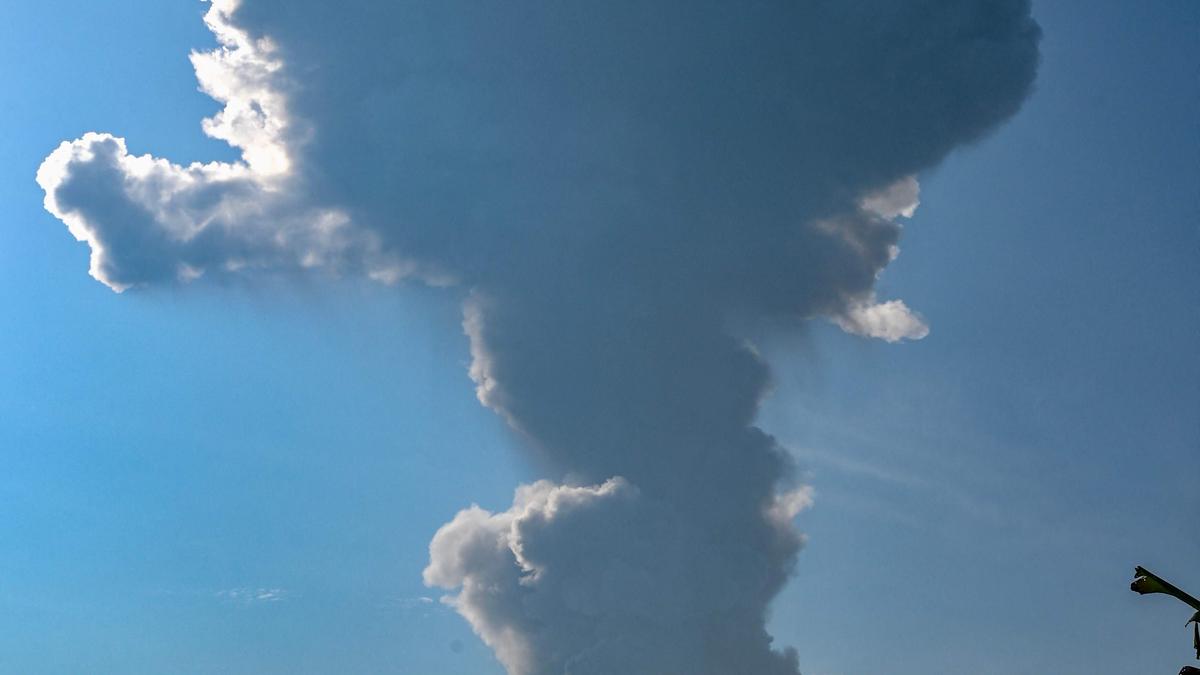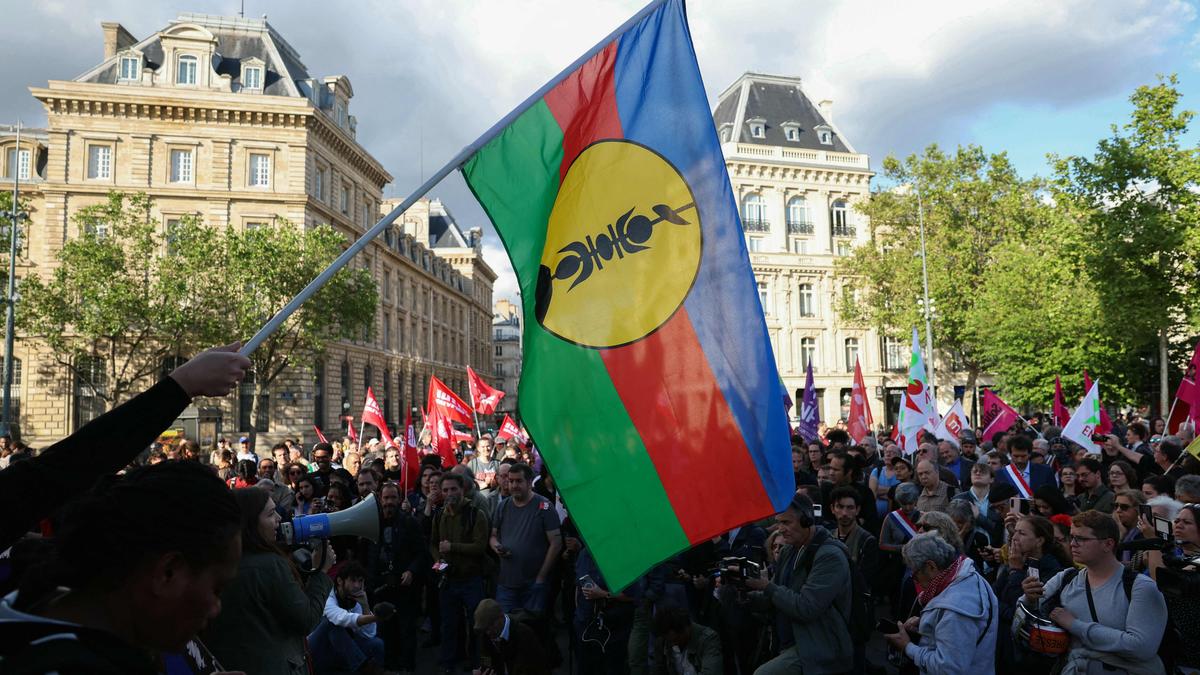As the green revolution revs up, the European Union has signed a deal with Rwanda that will ensure a supply of precious minerals needed to build clean tech like solar panels and electric vehicles.
What’s not to like? As the European Commission described it, after inking a Memorandum of Understanding back in February, the deal will “nurture sustainable and resilient value chains for critical raw materials”.
But all is not as it seems. It turns out that Rwanda is a country that exports more than it mines. Vast amounts of minerals like coltan and gold are smuggled from the war-ravaged Democratic Republic of the Congo to Rwanda, where they enter global supply chains.
The racket has been extensively documented by United Nations experts reporting on the DRC war – a spillover from the Rwandan genocide, which has dragged on nearly three decades, the outside world largely ignorant of the widespread use of rape to subjugate enemies and the massacres that have killed a staggering six million people.
The DRC says M23 rebels, who claim they are protecting local Tutsis from Hutu genocidaires in the resource-rich east, play an instrumental role in moving the goods over Lake Kivu. The DRC accuses Rwanda of backing the M23 – an allegation Rwanda has consistently denied.
Last year, Congolese finance minister Nicolas Kazadi said his country’s economy was losing $1bn a year in minerals through the illicit trade.
There is no shortage of evidence that conflict minerals are not only fuelling the fighting but also tainting supply chains. So why is the EU, which has condemned Rwanda’s role in the war, actively going after the spoils?
What’s the backdrop in the DRC?
The DRC should actually be one of the richest nations in the world, sitting on untapped reserves of precious metals and minerals – including coltan, cobalt, zinc, tin, gold and diamonds – mined from Haut Uele in the north to Katanga in the south, the overall value estimated at a whopping $24 trillion.
As the clean energy revolution picks up steam, eyes are on the conflict-ridden eastern provinces of North and South Kivu, where much of the country’s 3T minerals – tin, tungsten and tantalum extracted from coltan – needed for everything from small electrical components to turbines, are mined.
 A man displays coltan rocks at the SMB mine near the town of Rubaya in the Eastern Democratic Republic of the Congo, on August 13, 2019 [Baz Ratner/Reuters]
A man displays coltan rocks at the SMB mine near the town of Rubaya in the Eastern Democratic Republic of the Congo, on August 13, 2019 [Baz Ratner/Reuters]These minerals are mined in the mayhem of a war featuring more than 100 armed groups, and hostilities between the DRC and Rwanda ramping up since 2021, with each country accusing the other of supporting various militias.
What are the groups fighting for?
In 2022, UN experts said they had “solid evidence” that Rwandan troops were present in eastern DRC, providing support to M23 rebels. The Tutsi group re-emerged in 2021 with “increasingly sophisticated firepower and equipment”, fighting the Congolese army and its allies in the Democratic Forces for the Liberation of Rwanda (FDLR), the latter said to include Hutu killers from the 1994 Rwandan genocide in its ranks.
Unable to restore peace, DRC President Felix Tshisekedi called upon fighters to rally against the M23 two years ago, bringing together a motley crew of local defence and armed groups under the umbrella of the “Wazalendo” – Swahili for patriots. The role of the Wazalendo – untrained and traumatised by previous brutality – adds to an already toxic brew of national and ethnic rivalries.
 Activists lift a supporter of the Wazalendo during a demonstration calling for an end to the fighting between the M23 rebels and the Congolese army, denouncing the international community’s silence on the conflicts, in Goma, North Kivu province of DR Congo, on February 19, 2024 [Arlette Bashizi/Reuters]
Activists lift a supporter of the Wazalendo during a demonstration calling for an end to the fighting between the M23 rebels and the Congolese army, denouncing the international community’s silence on the conflicts, in Goma, North Kivu province of DR Congo, on February 19, 2024 [Arlette Bashizi/Reuters]Now M23 rebels have surrounded Goma, the provincial capital of North Kivu, controlling the 3T supply routes. Nearby, more than a million people displaced by the war huddle in squalid camps on the outskirts of the city, the women and children leaving the zone in search of ever-scarce supplies of food, in particular danger.
“They [the M23] massacre people to scare them off, they rape because raping is a way of humiliating people, to make them lose all dignity so they are obliged to leave, to go far away and to leave the area free for them,” a doctor living in the border town of Bukavu in South Kivu told Al Jazeera, speaking on condition of anonymity.
“The prime objective of this war is to gain access to mines,” he said.
How has the DRC lost control over its mines?
The DRC has a system for ensuring supply chains are free of conflict minerals. It’s called ITSCI – the International Tin Supply Chain Initiative. Set up by industry actors, the OECD declared in 2018 that the initiative was 100 percent aligned with its due diligence recommendations on mineral supply chains.
ITSCI provides suppliers and external auditors with certification guaranteeing that supply chains only include minerals from government-validated mines, with a “bagging and tagging” system designed to prevent conflict minerals from tainting the flow.
But in April 2022, British NGO Global Witness accused ITSCI of contributing to the laundering of conflict minerals, child labour, trafficking and smuggling in the DRC.
“In most of the bigger mines … there are hardly any checks of where these minerals are coming from,” said Alex Kopp, a senior campaigner with Global Witness, who conducted the investigation into the two Kivus.
Kopp told Al Jazeera he had found evidence that minerals from mines where armed groups were present were entering the system. In certain areas, in up to 90 percent of cases, minerals did not originate from the mines indicated on tags.
There were cases of bags being dumped in mines for “re-mining”, he said. Sometimes tags indicated mines that did not exist, or “dummy mines”, as Kopp called them. “Sometimes it’s not even a mine. It’s just a hole somewhere in the earth or a cave,” he said.
What’s happening in mines right now?
ITSCI said in April that it had resumed operations in the Masisi territory in North Kivu. This is Coltan Central, where most of the country’s precious supplies are mined by thousands of “creuseurs”, as artisanal miners are called.
Al Jazeera spoke to a Goma-based human rights activist, who had recently visited the Rubaya mines in the area and shed light on how battle lines are frequently blurred in the self-interested battle for mineral money.
The mines are owned by Societe Miniere Bisunzu (SMB), though the government withdrew the company’s operating permit last year and mining activities there are currently barred.
Insisting on anonymity, the activist said Wazalendo patriots are now running the show, some doing direct business with the M23, which controls local roads between exchange points in the town of Mushaki and Goma, and the border.
He told Al Jazeera that miners are paid $2 a day to “go underground like animals” – frequently breaching government rules that they dig no deeper than 30 metres – extracting the mineral with shovels, pickaxes and bare hands.
As well as being docked a day’s pay each month as tax, they are forced to slave one day a week without pay for Wazalendo fighters.
 A miner works at the entrance of a shaft at the SMB coltan mine near the town of Rubaya in the eastern Democratic Republic of the Congo, on August 16, 2019 [Baz Ratner/Reuters]
A miner works at the entrance of a shaft at the SMB coltan mine near the town of Rubaya in the eastern Democratic Republic of the Congo, on August 16, 2019 [Baz Ratner/Reuters]Global Witness’s Kopp said that, given the evident gaps in the ITSCI tracing system, there was a high risk that the EU could end up sourcing “minerals that are smuggled and could be connected to armed conflict”. “It’s a system that really doesn’t work,” he said.
What effect will the EU deal with Rwanda have?
In the West, Rwanda is today largely perceived as a beacon of progress, 30 years after the 1994 genocide that saw 800,000 minority Tutsis slaughtered by their Hutu compatriots – though rights groups say that any progress has come with a hefty side order of repression.
The country is on excellent terms with Brussels, even if the latter last year condemned its alleged meddling in the DRC. In 2002, the EU gave the Rwandan military 20 million euros through its European Peace Facility mechanism to beat back armed groups in Mozambique, thus securing the site of a gas project being built by France’s Total.
The MoU signed by Brussels and Kigali deepens that relationship. It speaks of achieving “sustainable and responsible production” through “increased due diligence and traceability, cooperation in fighting against illegal trafficking of raw materials and alignment with international Environmental, Social and Governance (ESG) standards”.
However, with ITSCI the only system for tracing minerals in the DRC, it is difficult to see how regulators can crack down, say experts. “I have no idea what they’re talking about when they say ESG international standards because it actually means not much,” said Caroline Avan, of the Business and Human Rights Resource Centre.
“There are international standards around responsible mining, but they are all voluntary and not in place everywhere,” she said. One such voluntary arrangement is the Initiative for Responsible Mining Assurance, a coalition of industry, NGOs and trade unions. On paper, it makes sense, but with no international authority overseeing enforcement, it lacks teeth.
Will the deal go ahead?
Last week, the issue of tainted supply chains came under the spotlight, when lawyers acting for the DRC government warned Apple that it could face legal action if it carried on purchasing “blood minerals” smuggled from the embattled east into Rwanda.
The formal notice to the tech giant could exert pressure on the European Commission to review its plans. European officials working in the DRC themselves disapproved of the deal, said Marc Botenga, a Member of the European Parliament with the Belgian Workers’ Party, who wants to see it scrapped.
“When you make this kind of deal, it’s basically saying to Rwanda, ‘We’re perfectly fine with what you’re doing and we’re going to encourage you’,” he said. “If we allow the commission to get away with it, this deal will stand because they need the raw materials for their windmills, for their solar [panels] and so on.
“It will be very difficult to back down on it.”

 2 weeks ago
101
2 weeks ago
101



